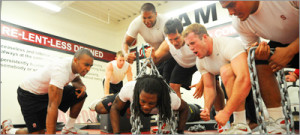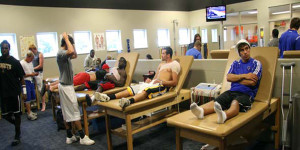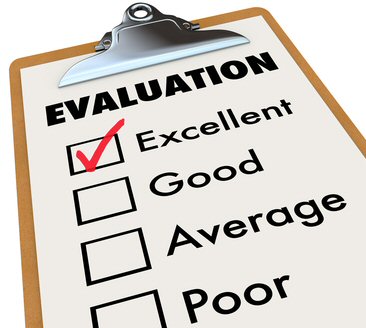In my previous blog I suggested that you can find young talent in college student- athletes because many hiring managers value skills that they work on every day. Aimee commented on my post and said I should not imply that student-athletes automatically make good employees. I stand by what I said and I will agree with Aimee on the point that student-athletes do not automatically make good employees. Speaking with coaches and support staff can help you determine if the applicant will make a good employee. Coaches and support staff have spent the last 4 to 5 years evaluating these student-athletes in different capacities EVERY DAY. Using them as a reference can help paint an accurate picture of the student-athlete’s character, work ethic and intangibles that are important to you. THE STRENGTH COACH Student-athletes spend the most of their time with the strength coach because they train year around, and the strength coach will know the student-athletes well. He or she will know everything about their work ethic, dedication, EQ, accountability, responsibility, goal setting, follow through, leadership and treatment of others. This relationship is unique because field or court production does not factor into the evaluation. The focus is on their performance and improvement in the weight room and conditioning sessions. So every student-athlete is on an equal playing field regardless of abilities.  THE ASSISTANT OR POSITION COACH In addition to having the knowledge that the strength coach has, the assistant or position coach will be able to give you more detail and answer questions. Is he/she coachable? Is he/she a student of the game or does he/she only doing the bare minimum required? How does he/she respond to adversity? How are his/her time management skills? How does he/she learn and how fast? Does he/she own their mistakes or make excuses and blame others? Does he/she grasp concepts? Can he/she adjust to quick changing environments or retain information? Can he/she process information quickly and react appropriately? The assistant or position coach holds valuable information about the student-athlete. THE ATHLETIC ACADEMIC COUNSELOR Counselors know how the student-athletes learns in class room settings, their level of intelligence, ability to complete classroom assignments and solving problems. They have feedback from professors to help them evaluate, and in my experience, college professors only care about the students who care to do well in the course. Their opinion and feedback will be honest and unbiased. The feedback will include work ethic, class participation, class attendance, (on time) completion of assignments, and overall grades. THE ATHLETIC TRAINER Student-athletes rehab in the training room, but they also kill time, rest or socialize there. The trainer has first-hand knowledge of the student-athlete’s people skills and how he/she interacts with others. They do not fear trainers like they do coaches so they are usually themselves and communicate freely. The trainers also see how they respond to long term adversity. How did they handle a 6 month rehab plan? Do they show up every day and work hard? Are they always on time? Do they follow through with their commitments or do they struggle to stick to the long term plan? The answers to these questions can be indicators on how they will do as an employee.
THE ASSISTANT OR POSITION COACH In addition to having the knowledge that the strength coach has, the assistant or position coach will be able to give you more detail and answer questions. Is he/she coachable? Is he/she a student of the game or does he/she only doing the bare minimum required? How does he/she respond to adversity? How are his/her time management skills? How does he/she learn and how fast? Does he/she own their mistakes or make excuses and blame others? Does he/she grasp concepts? Can he/she adjust to quick changing environments or retain information? Can he/she process information quickly and react appropriately? The assistant or position coach holds valuable information about the student-athlete. THE ATHLETIC ACADEMIC COUNSELOR Counselors know how the student-athletes learns in class room settings, their level of intelligence, ability to complete classroom assignments and solving problems. They have feedback from professors to help them evaluate, and in my experience, college professors only care about the students who care to do well in the course. Their opinion and feedback will be honest and unbiased. The feedback will include work ethic, class participation, class attendance, (on time) completion of assignments, and overall grades. THE ATHLETIC TRAINER Student-athletes rehab in the training room, but they also kill time, rest or socialize there. The trainer has first-hand knowledge of the student-athlete’s people skills and how he/she interacts with others. They do not fear trainers like they do coaches so they are usually themselves and communicate freely. The trainers also see how they respond to long term adversity. How did they handle a 6 month rehab plan? Do they show up every day and work hard? Are they always on time? Do they follow through with their commitments or do they struggle to stick to the long term plan? The answers to these questions can be indicators on how they will do as an employee.  THE HEAD COACH The head coach will have a general knowledge of what the strength coach, position coach, and advisor knows. The head coach will have a different perspective because he/she evaluates from a broader view of student-athlete’s contributions to the overall team compared to his/ her peers. Athletes have a lot of support and are surrounded by people whose sole job is to ensure that they are successful so that their sports program does not get penalized by the NCAA. These key positions will know the student-athletes well because of their daily involvement with them. These coaches and support staff will be eager to help the well-deserving student-athletes in the next chapter of their life.
THE HEAD COACH The head coach will have a general knowledge of what the strength coach, position coach, and advisor knows. The head coach will have a different perspective because he/she evaluates from a broader view of student-athlete’s contributions to the overall team compared to his/ her peers. Athletes have a lot of support and are surrounded by people whose sole job is to ensure that they are successful so that their sports program does not get penalized by the NCAA. These key positions will know the student-athletes well because of their daily involvement with them. These coaches and support staff will be eager to help the well-deserving student-athletes in the next chapter of their life.
Hiring Student-Athletes? Check Their References The Following Ways.

